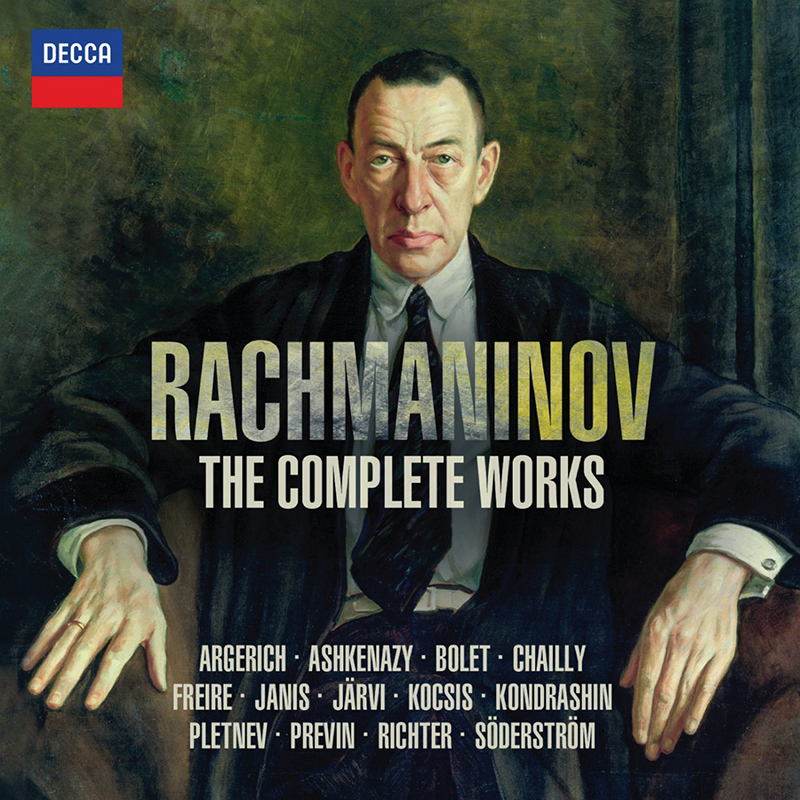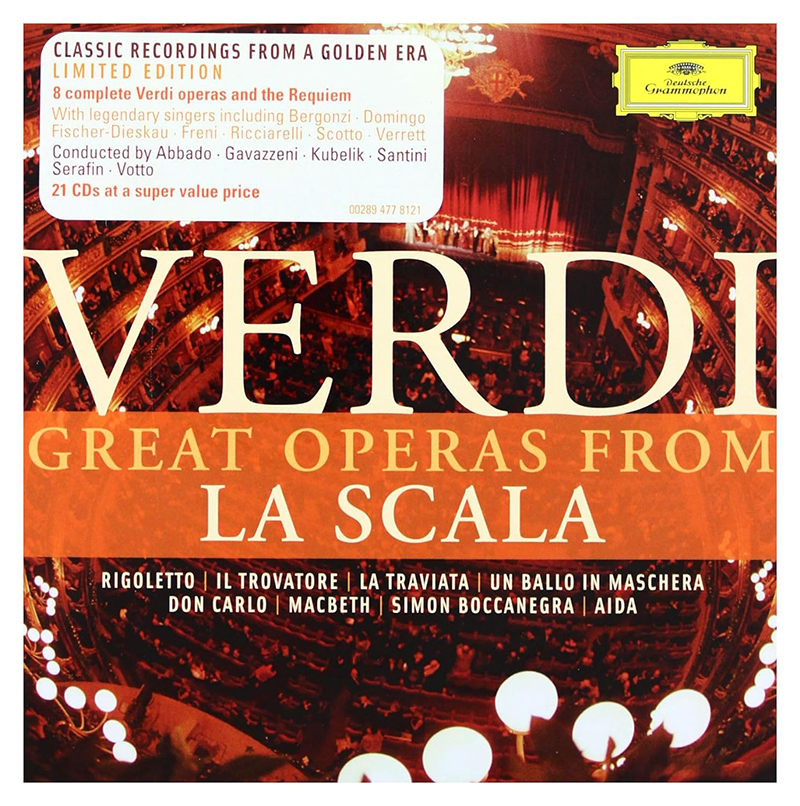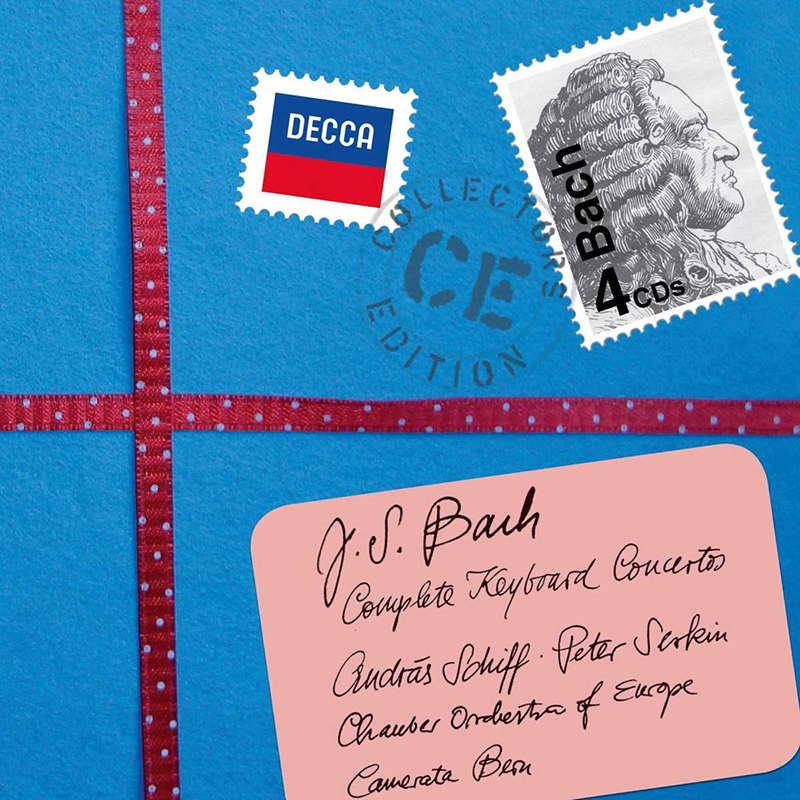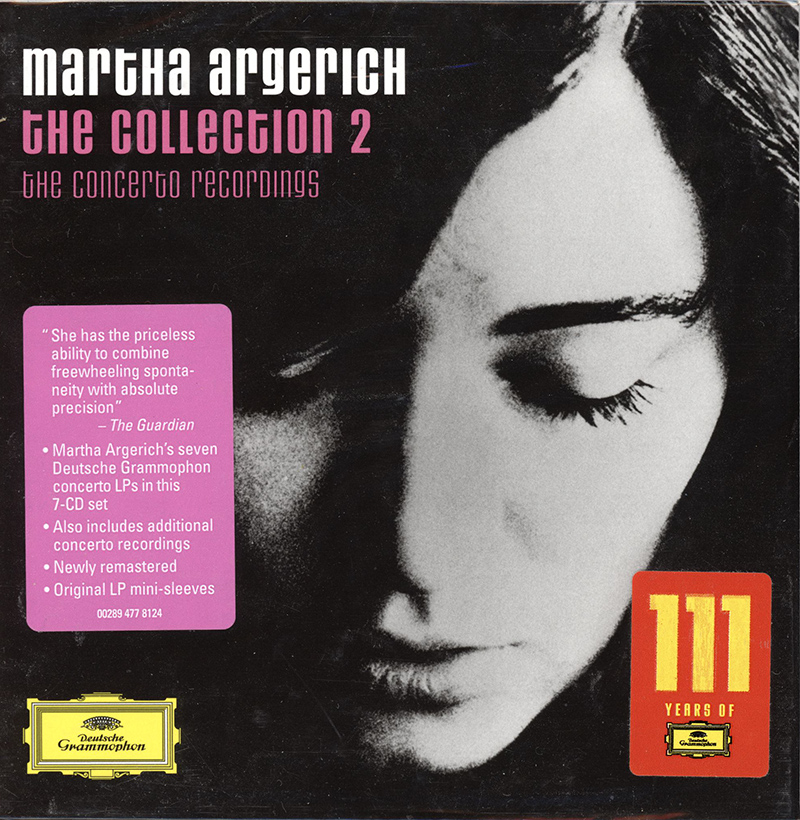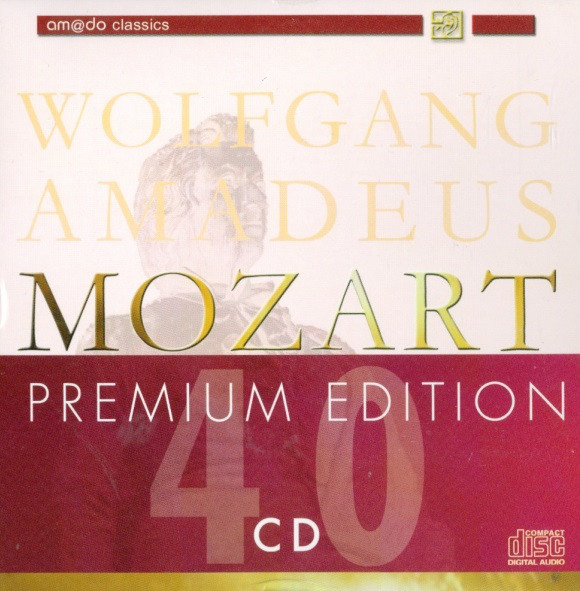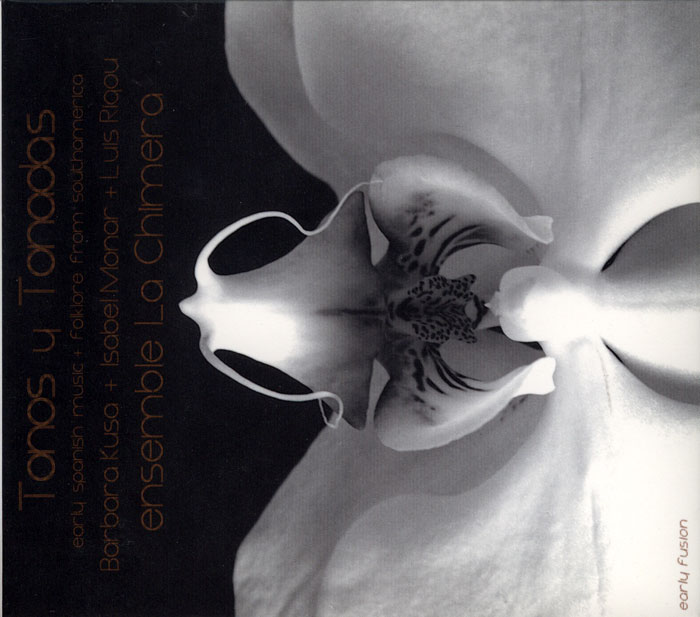Logowanie
KOLEKCJE!
BACH, CHOPIN, LISZT, MOZART, GRIEG, Dinu Lipatti, Otto Ackermann, Ernest Ansermet
The Master Pianist
PROKOFIEV, CHOPIN, TCHAIKOVSKY, SCHUMANN, BEETHOVEN, Martha Argerich, Claudio Abbado, Giuseppe Sinopoli
The Concerto Recordings
The Collection 2
Jakość LABORATORYJNA!
ORFF, Gundula Janowitz, Gerhard Stolze, Dietrich-Fischer Dieskau, Deutsche Oper Berlin, Eugen Jochum
Carmina Burana
ESOTERIC - NUMER JEDEN W ŚWIECIE AUDIOFILII I MELOMANÓW - SACD HYBR
Winylowy niezbędnik
ClearAudio
Essence MC
kumulacja zoptymalizowana: najlepsze z najważniejszych i najważniejsze z najlepszych cech przetworników Clearaudio
Direct-To-Disc
PIAZZOLLA, ChamberJam Europe
Tangos del Ángel y del Diablo
Direct-to-Disc ( D2D ) - Numbered Limited Edition
Ensemble La Chimera
Tonos y Tonadas
- Ensemble La Chimera - Tonos u Tonadas
- 01. Ay amargas soledades (1:16) >>> Posłuchaj fragmentu <<<
- 02. Quien te amaba ya se va (4:01) >>> Posłuchaj fragmentu <<<
- 03. Temprano naces almendro (2:11) >>> Posłuchaj fragmentu <<<
- 04. Tras vos yo voy (1:08) >>> Posłuchaj fragmentu <<<
- 05. Chayita del vidalero (2:53) >>> Posłuchaj fragmentu <<<
- 06. Vuelve Barquilla (4:44) >>> Posłuchaj fragmentu <<<
- 07. Pampa de los guanacos (3:06) >>> Posłuchaj fragmentu <<<
- 08. Vidala para mi sombra (5:34)
- 09. Ya las sombras de la noche (2:15)
- 10. Quiero ser luz (4:22)
- 11. Compadre del sol (3:45)
- 12. De los alamos vengo (1:55)
- 13. Sueno de la vendimia (3:37)
- 14. Tonada El Diamante (3:02)
- 15. Ojos negros (1:20)
- 16. Vuestros ojos (2:16)
- 17. Milonga triste (4:11)
- 18. Ojos azules (5:38)
- 19. Canarios (4:47)
- 20. Noche serena (5:36)
- 21. O magnum mysterium (2:44)
- 22. canto al silencio (3:17)
- Ensemble La Chimera
dawna muzyka z Hiszpanii i melodie ludowe z Ameryki Południowej
Tonos y Tonadas A little over 500 years ago, humanity met up with itself again in one of history's frequent coincidences. Europe met with Terra Ignota Australis , which later became known as America, again as a result of those frequent peculiarities of history. One of the most important cultural exchanges in history started to come about after a conquest carried out for purely economic and military motives; a conquest, with both benefits and detriments, which was generally considered to be European, not solely Spanish. After this initial period, a cultural osmosis took place from the conqueror to the conquered. However, in the Spanish case-which can be categorized as unique- unlike the other European conquests, this osmosis operated in both directions. This work focuses on this aspect, examining a specific geographic region, namely the Virreynatos (Viceroyalties of Spain), located along the Andes mountain chain, and a specific point in the historical, philosophical, economic, religious and even sociological context: the last thirty years of the 17th Century, the generation which came immediately after the "Golden Age" (Spain's literary renaissance) during the reign and era of Charles II " El Hechizado " (The Bewitched), the last of the Habsburgs. This was a point in history in which Spain was exhausted and diminished, its monarchy waning, its economic resources spent, its population decreasing and, worse, its creative capacity, so influential a mere thirty years before, in decline. This decline inevitably extended to the arts in general, and to music and for works of the theatre. The name of this record, "TONOS y TONADAS" (Tones and Ballads), reflects this phenomenon: unlike the rest of Europe, Spain was not producing Baroque instrumental music and both highbrow and lowbrow literature existed side by side. Musicians used the latter style, almost always tonos humanos created by ordinary folk, as the basis for their work. Thus, was born a ballad style which was not completely in contrast to the religious music of the time, but merely different in form and content, lacking its intellectual depth and purity, but possessing a freshness and natural character. It also differed from other European music from the same period; the TONADAS, music and ballads coming from Latin America and, specifically, from the Virreynatos (Viceroyalties), were directly influenced by the literary and musical popular forms described above. This, then, is the content of this recording, which aims to capture a series of themes common to both cultures, the defining elements of this type of music: COPLAS (popular folk songs), about things dearest to the heart, typically sung during the FIESTAS (popular festivals), and perhaps the best example of the osmosis so often described; MISTERIO (mystery), that go with almost all expressions of deep feeling, particularly the religious, SOMBRAS (shadows), representing fear or recreating the unknown, the OJOS (eyes), representing contact between the "I" and the "YOU", ARRAIGO (attachment) to particular people or things, spaces or moments and, finally, DESENGAÑO (regret), felt for that which was lost, and that which was desired but never achieved. All these are shared elements, constituting a bi-directional contribution to the intellectual enrichment of two cultures meeting each other. We are confident that those who listen with intent to this record and read these sleeve notes, will connect immediately with the basic elements expressed; seeking and finding them depends on ones sensitivity to music and literature. We have sought to assemble a collection of the common cultural elements previously described, which provides a journey, or even a leisurely stroll, whose path makes us feel the excitement of a discovery, whose truth creates a vast and attractive future for literature in particular. Adrian Besné
